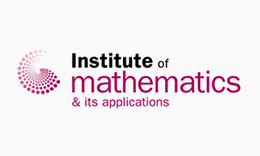Financial Mathematics Code G1N3 Attend an Open Day Attend an Open Day
Apply NowKey Facts
G1N3-
UCAS Tariff
120 - 104
-
Course duration
3 years
Available for September start 2025
Further details on entry requirements
Apply NowAt Aberystwyth University, our bespoke Financial Mathematics degree will prepare you for work or professional study in the financial sector. Established in response to the demand from employers in the financial sector for graduates with an understanding of mathematics, you will be taught core mathematical skills, including algebra, calculus and statistics, along with specialist mathematical techniques in a financial context, for example, in stochastic modelling of the stock market. During your degree you will acquire a solid understanding of the principles of economics and of financial accounting and management.
This degree is accredited by the IMA (Institute for Mathematics and its Applications), the UK's learned and professional society for mathematics, directly contributing to your recognition as a Chartered Mathematician.
Course Overview
Modules September start - 2025
Please note: The modules listed below are those currently intended for delivery during the next academic year and may be subject to change. They are included here to give an indication of how the course is structured.
| Module Name | Module Code | Credit Value |
|---|---|---|
| Accounting and Finance for Specialists | AB11220 | 20 |
| Algebra * | MA10510 | 10 |
| Calculus * | MP10610 | 10 |
| Coordinate and Vector Geometry | MA10110 | 10 |
| Differential Equations | MA11210 | 10 |
| Fundamentals of Accounting and Finance * | AB11120 | 20 |
| Further Algebra and Calculus * | MP11010 | 10 |
| Mathematical Analysis * | MA11110 | 10 |
| Probability | MA10310 | 10 |
| Statistics | MA11310 | 10 |
| Module Name | Module Code | Credit Value |
|---|---|---|
| Applied Statistics | MA26620 | 20 |
| Corporate Finance and Financial Markets | AB21420 | 20 |
| Distributions and Estimation | MA26010 | 10 |
| Intermediate Financial Accounting | AB21120 | 20 |
| Introduction to Numerical Analysis and its applications | MA25220 | 20 |
| Linear Algebra * | MA21410 | 10 |
Options
| Module Name | Module Code | Credit Value |
|---|---|---|
| Complex Analysis * | MA21510 | 10 |
| Introduction to Abstract Algebra | MA20310 | 10 |
| Real Analysis | MA20110 | 10 |
| Module Name | Module Code | Credit Value |
|---|---|---|
| Investments and Financial Instruments | AB31320 | 20 |
| Probability and Stochastic Processes | MA37410 | 10 |
| Stochastic Models in Finance | MA37810 | 10 |
Options
| Module Name | Module Code | Credit Value |
|---|---|---|
| Advanced Financial Accounting | AB31120 | 20 |
| Comparative Statistical Inference | MA36010 | 10 |
| Graphs and Networks | MA32410 | 10 |
| Linear Statistical Models | MA36510 | 10 |
| Norms and Differential Equations | MA30210 | 10 |
| Partial Differential Equations | MA34110 | 10 |
| Statistical Inference and Linear Models | MA36820 | 20 |
| Taxation | AB31520 | 20 |
| The Role and Practice of Auditing | AB31620 | 20 |
* Also available partially or entirely through the medium of Welsh
Careers
Teaching & Learning
Student Testimonials
Typical Entry Requirements
UCAS Tariff 120 - 104
A Levels BBB-BCC to include B in Mathematics
GCSE requirements (minimum grade C/4):
English or Welsh and Mathematics
BTEC National Diploma:
DMM-DDM with B in A level Mathematics
International Baccalaureate:
30-28 with 5 points in Mathematics at Higher Level
European Baccalaureate:
75%-65% overall with 7 in Mathematics
English Language Requirements:
See our Undergraduate English Language Requirements for this course. Pre-sessional English Programmes are also available for students who do not meet our English Language Requirements.
Country Specific Entry Requirements:
International students whose qualification is not listed on this page, can check our Country Specific Entry Requirements for further information.
The University welcomes undergraduate applications from students studying the Access to Higher Education Diploma or T-level qualifications, provided that relevant subject content and learning outcomes are met. We are not able to accept Access to Higher Education Diplomas or T-levels as a general qualification for every undergraduate degree course.
Our inclusive admissions policy values breadth as well as depth of study. Applicants are selected on their own individual merits and offers can vary. If you would like to check the eligibility of your qualifications before submitting an application, please contact the Undergraduate Admissions Office for advice and guidance.

